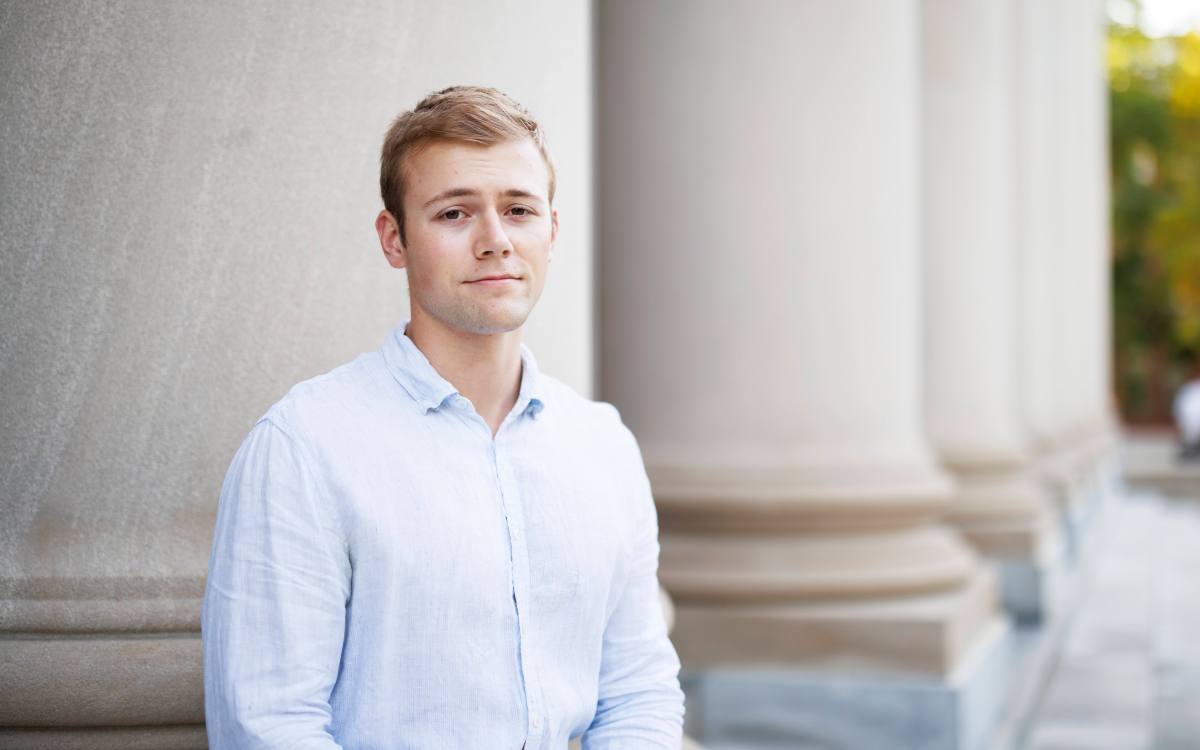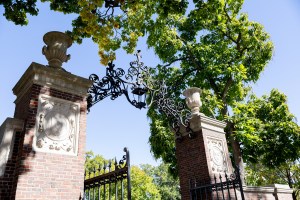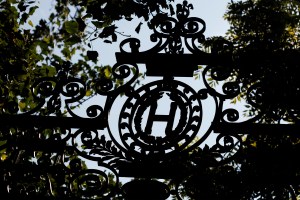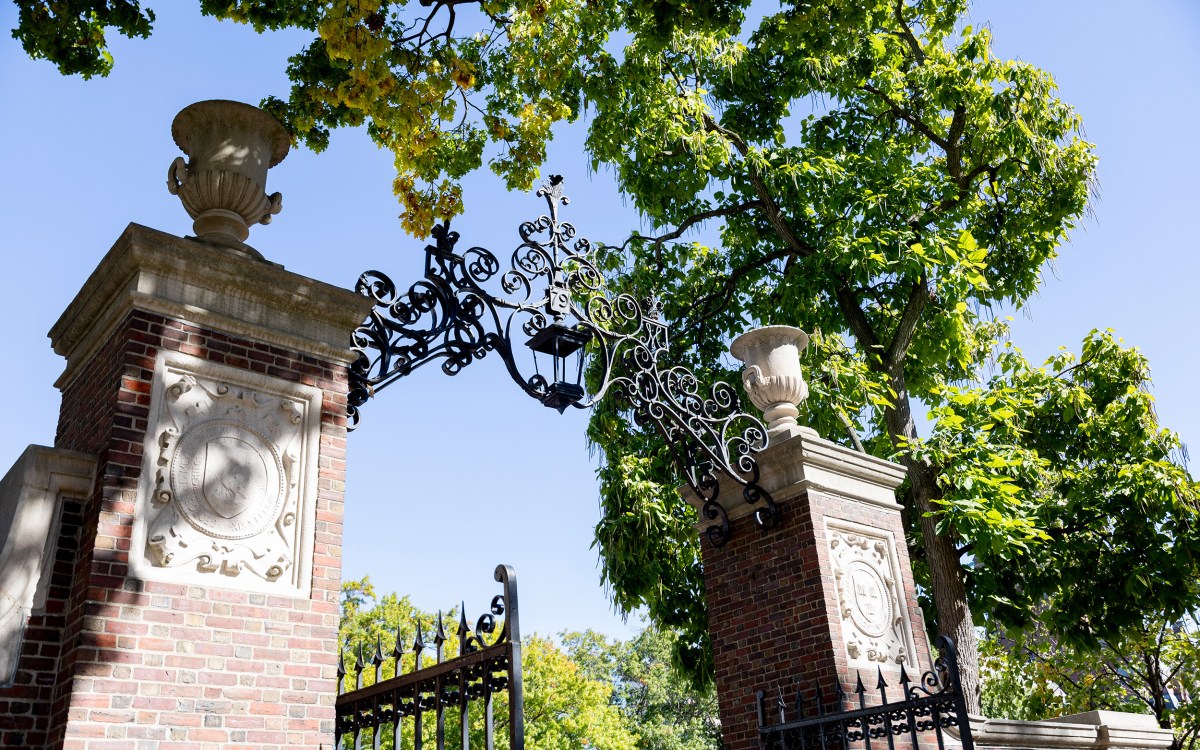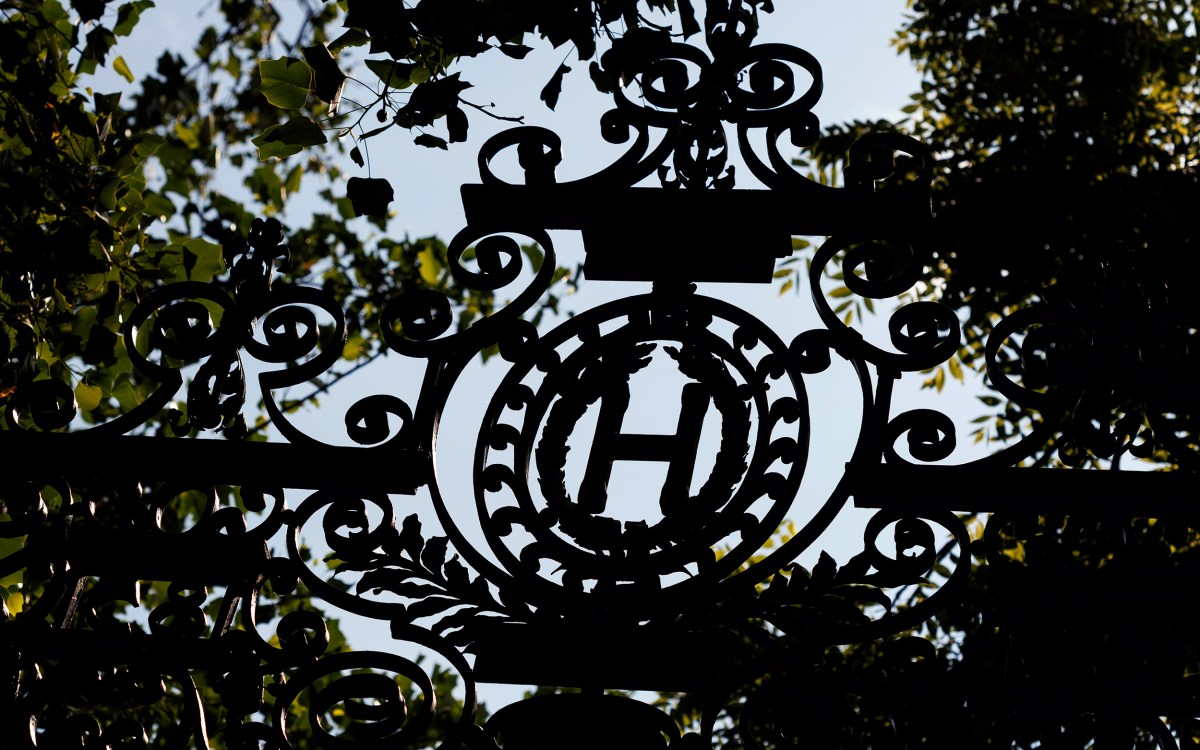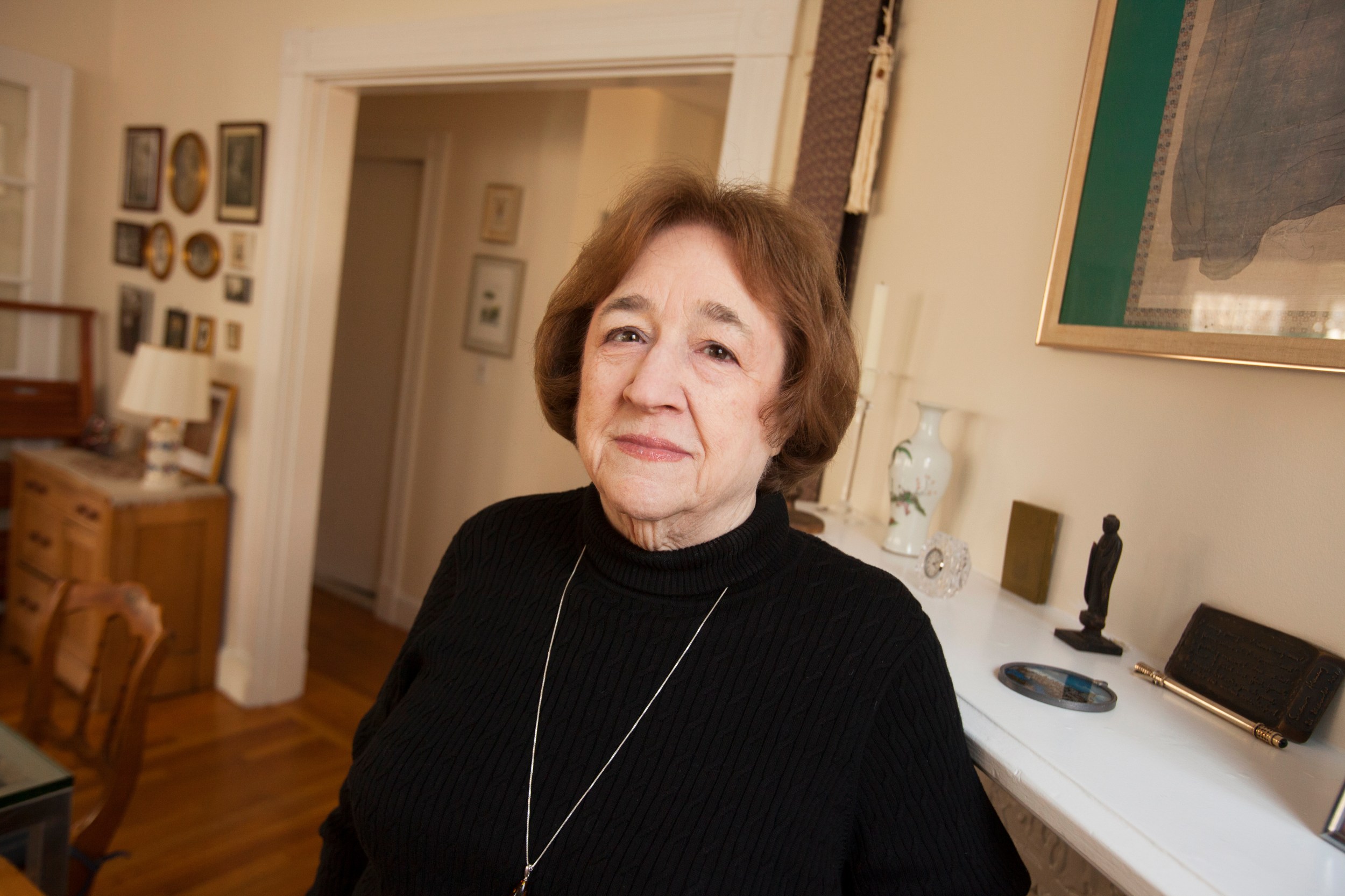
Helen Vendler is the A. Kingsley Porter University Professor at Harvard University. She is pictured in her home in Cambridge. Stephanie Mitchell/Harvard Staff Photographer
Stephanie Mitchell/Harvard Staff Photographer
Colleagues, students remember Helen Vendler, a ‘titan’ of poetry criticism
Beyond her passion for her work, they say, she was creative and engaged teacher, thoughtful adviser and mentor, trusted friend
When Helen Vendler taught William Blake’s “The Lamb,” she often ended class discussions by reading the poem aloud. Arms extended as if cradling a lamb, gaze directed upward, Vendler would embody the character of the worshipful child speaker.
One time, graduate students recall, Vendler also offered the lamb’s response — an unexpected “baa,” to the uproarious delight of her students. A celebrated literary scholar with a sometimes-unexpected sense of humor, Vendler took every opportunity to bring poetry to life, making her courses unforgettable experiences, according to students and colleagues.
Vendler, one of the world’s foremost critics of English and American poetry, died April 23 in Laguna Niguel, California. She was 90.
The Arthur Kingsley Porter University Professor Emerita, Vendler taught in the Faculty of Arts and Sciences for more than 30 years and published more than 30 books on poetry criticism. Last year she was awarded a Gold Medal for Belles Lettres and Criticism from The American Academy of Arts and Letters.
Vendler wrote on many of poetry’s giants, including Shakespeare, George Herbert, John Keats, Emily Dickinson, William Butler Yeats, Wallace Stevens, and Seamus Heaney. Her textbook “Poems, Poets, Poetry,” which was derived from her renowned undergraduate course of the same name, introduced countless non-humanities students to English and American poetry.
Vendler’s colleagues and former Harvard students remembered her not only as a discerning poetry critic, but also as a kind and attentive teacher, thoughtful adviser, and trusted friend.
“Helen was a titan in our department and in the world of letters.”
Glenda Carpio
“Helen was a titan in our department and in the world of letters,” said Glenda Carpio, Powell M. Cabot Professor of American Literature and chair of the Department of English. “As we, faculty, staff, and students, grieve her loss, we are sharing our stories about her. All of them point to the rigor and joy with which she taught and wrote about poetry, to Helen’s singular gift for candor and courage of thought … Poetry scholarship changed because of her and will never be the same with her passing.”
The daughter of two public-school teachers, Vendler was born in Boston in 1933, and often visited Widener Library and attended poetry readings at Harvard as a teenager. She graduated from Emmanuel College with a degree in chemistry in 1954 and was awarded a Fulbright Fellowship in mathematics — which she changed to literature — at the University of Louvain in Belgium. She earned her Ph.D. in English and American literature from Harvard in 1960.
One of few women working in her field at the time, Vendler taught at Cornell, Swarthmore, Haverford, Smith, and Boston University before joining Harvard’s faculty in 1985. Five years later, she became the first woman to be named a University Professor.
“I have never wanted to write on anything but poetry and I have never wanted to teach anything but poetry.”
Helen Vendler
“I have never wanted to write on anything but poetry and I have never wanted to teach anything but poetry,” Vendler said last May upon receiving the Belles Lettres medal. “I do understand, I think, what it feels like to be a poet, even though I’m not one. I was born with a mind that likes condensed and unusual language, which is what you get from poems.”
Stephanie Burt, Donald P. and Katherine B. Loker Professor of English, said Vendler set an example with her ability to treat poems as both objects of intellectual interest and a representation of human emotion.
“A work of art can change people,” Burt said. “What so much of Helen’s work is about is explaining how works of art do that. ‘How does this work?’ and ‘Why is this a poem?’ ‘Where is the feeling inside this work?’ ‘Who’s in there?’ She was able to show not just how all the many parts fit together, but how it feels to live inside these poems which she lived inside so attentively.”
” She was able to show not just how all the many parts fit together, but how it feels to live inside these poems which she lived inside so attentively.”
Stephanie Burt
Gordon Teskey, Francis Lee Higginson Professor of English Literature, said it was amazing to witness the amount of time his friend and colleague dedicated to her students, which he saw from his office beside Vendler’s in the Barker Center.
“Helen believed passionately in the ideal of Harvard — veritas — and stood up for it uncompromisingly and on all occasions, as she did for gender equality,” Teskey said. “With equal passion she believed in the centrality of poetry to education, which she demonstrated with unparalleled, luminous insight.”
“Helen believed passionately in the ideal of Harvard — veritas — and stood up for it uncompromisingly and on all occasions, as she did for gender equality.”
Gordon Teskey
Christopher Spaide, Ph.D. ’19, who was Vendler’s student and teaching assistant from 2013 to 2019, remembered Vendler as a creative and engaged teacher who edited every student’s work attentively by hand, and encouraged everyone to take unusual courses to expand their horizons.
Spaide, who is now a postdoctoral fellow in poetics at Emory University, remembers watching Vendler deliver an undergraduate lecture on Keats’ “To Autumn” — a poem on which she had written a 50-page book chapter — with entirely new and fresh ideas not included in the book.
“She was so inventive,” Spaide said. “She found something new and refreshing in every class.”
Burt, who studied with Vendler as a Harvard undergraduate before later becoming her colleague, remembers her as a dedicated mentor as willing to give advice on parenting as on poems.
“She wasn’t there for herself; she was there for the work,” Burt said. “She was there to get you inside ‘The End of March’ or ‘The Auroras of Autumn’ or ‘To Autumn.’ She was there to show how works of art work, and why they work, and how the parts fit together.”
In the classroom, Vendler would employ creative ways of bringing a poem to life for her students, such as drawing pictures on the board to illustrate each line of “To Autumn.”
“She was so happy and delighted when she learned something,” Spaide said “It was not a class where she had the right answer and then we all attempted to replicate it. Sometimes someone would point out something she had never thought of, and she would say ‘Thank you.’ She was really grateful for that.”
Vendler is survived by her son, David, and his wife, Xianchun, and by her grandchildren, Killian and Céline.
